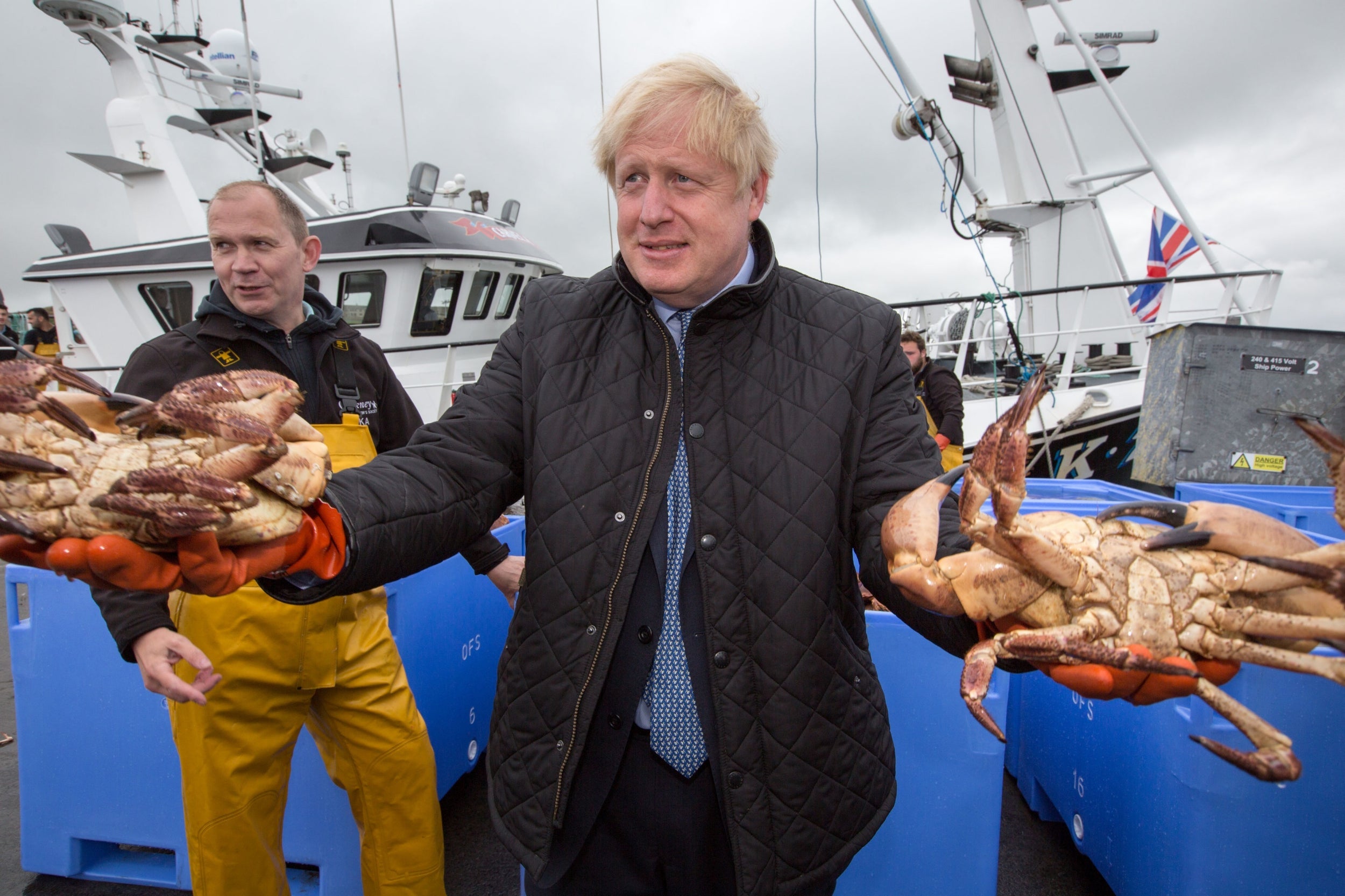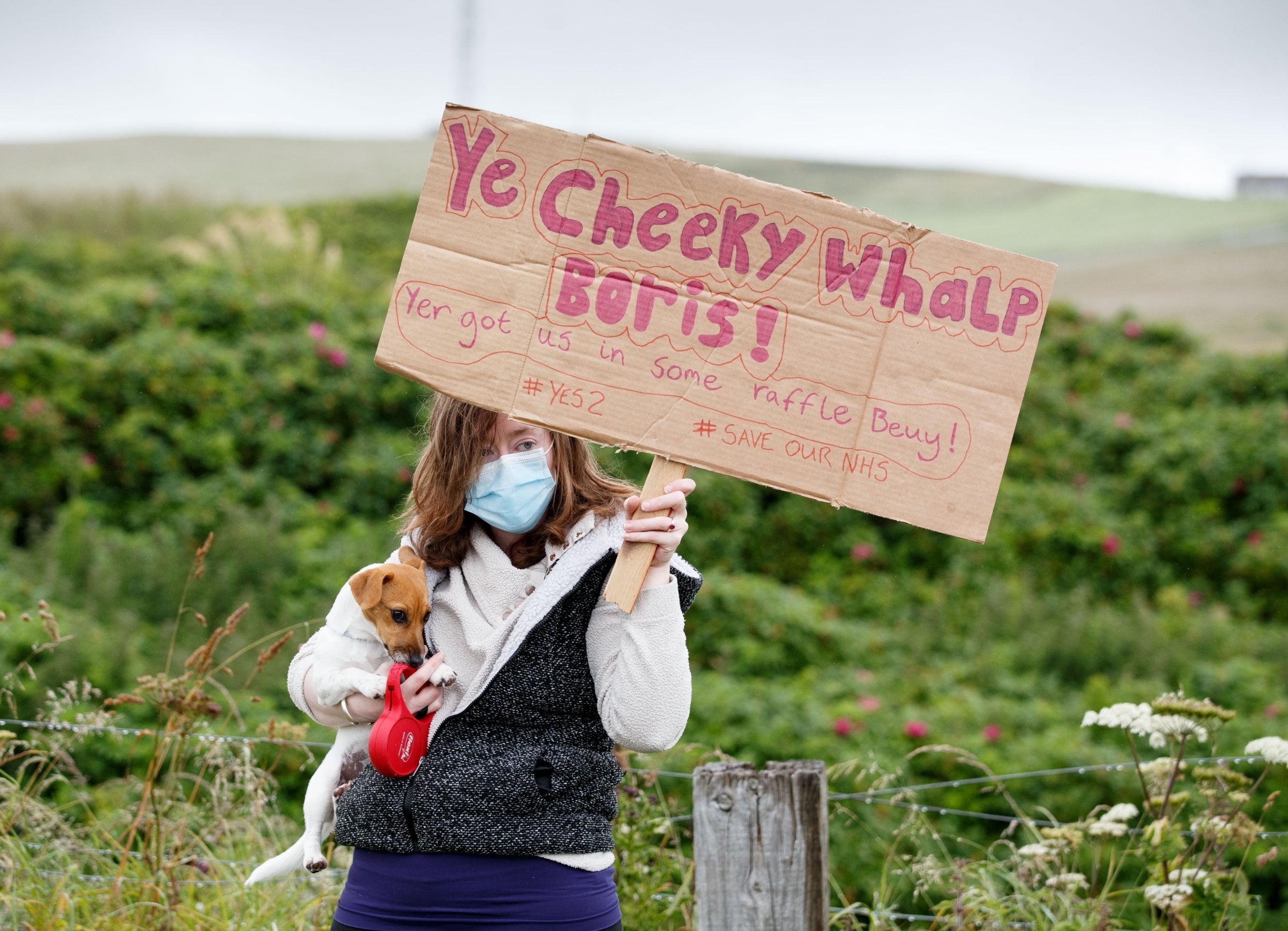Why the Conservatives will never be Scotland’s party of choice
To Scotland, which voted overwhelmingly to remain, the prime minister will always be the face of Brexit, just as his failings during the pandemic are in sharp contrast to Sturgeon’s successes. He’ll never truly be welcome north of the border, writes Sean O'Grady


Given that one of the main drivers of the new momentum towards Scottish independence is Boris Johnson, it is not immediately obvious why having Boris Johnson visit Scotland is going to make the union stronger. Independence is now showing a sustained lead in the polls, at around 50 per cent with 43 per cent for the status quo and 7 per cent undecided. Next year’s elections for the Scottish parliament are expected to result in a thumping mandate for a fresh mandate. Westminster has the right to refuse it, but the consequences might be ugly and counterproductive.
The PM’s day trip to Orkney to catch crabs was a result of the recent UK political cabinet on the future of the union, and those who believe that England and Scotland are “better together”, to borrow a phrase, will be hoping that this is not the best that HM Government can come up with.
Mr Johnson suffers from a number of disadvantages north of the border. First, he and his party have long been unpopular, even though they enjoyed something of a revival under the energetic leadership of Ruth Davidson – until she quit to spend more time with her family when Mr Johnson was elected leader of his party a year ago. In stark contrast to England and Wales, Mr Johnson and his party fared poorly in last year’s general election, losing seven of its 13 seats and scoring a quarter of the vote, though ahead of Labour, whose Scottish decline has been even more dramatic. Compared to the parliamentary wipeout of 1997, it at least allows for someone from a Scottish seat to become secretary of state for Scotland in a Conservative administration.
However, the long-term trend is clear; the last time the Conservatives won in Scotland was in 1955, 10 years before Mr Johnson was born. The argument that the Scots haven’t voted for Tory rule since the time of Anthony Eden holds some weight. Labour’s critical weakness, a result of decay and poor leadership, at least since 2015 means it is unlikely the Scottish people ever will have their party of choice in power in London.
It is not just Mr Johnson’s extreme Eton-and-Oxford Englishness that puts the Scottish voters off. After all many of them also heartily loathed Margaret Thatcher and many other Tories, some of them in fact Scottish. It is probably also a matter of policy more than personality.
For Mr Johnson is, after all, the face of Brexit, which 62 per cent of Scottish voters rejected in 2016, and for many that is an indelible, original sin.
Like Mrs Thatcher, who fatally used Scotland as a kind of laboratory for the poll tax in the 1980s, Mr Johnson has seemed happy to ignore Scottish concerns on everything from Brexit to Covid. Despite promises made after the 2014 independence referendum, the Scottish parliament can be overuled all too easily by Westminster and Whitehall. The Sewel Convention, designed to bolster devolution, was found by the UK Supreme Court (in London) to have nonlegal force when the Scottish government tried to invoke it to soften Brexit. Now the SNP accuse British ministers of a “power grab” of powers being repatriated from Brussels instead going to London under the UK Internal Market Act. Edinburgh also resents having no formal say in UK trade deals. The British government argues that Brexit is hugely devolutionary, and that the SNP favour sending power and sovereignty to the EU, notably regarding the fishing grounds.

Covid has also made the case for Scotland’s ability to govern itself effectively. Nicola Sturgeon enjoys vastly better ratings than Mr Johnson for her handling of the crisis, and still appears each weekday for the Covid briefing. More broadly she has appeared the more mature player, welcoming the prime minister to Scotland despite Mr Johnson not having a meeting with her. Mr Johnson sometimes launches Covid policy changes for England as if they were for the whole UK. In any case the first minister and prime minister don’t talk much, he refers to her as “that wee Jimmy Krankie woman” and they’ve not met at Bute House since July 2019.
Most of all though Mr Johnson’s arguments sound patronising. He claims that the “might of the Union” in the Covid crisis has meant Scotland benefited from UK armed forces and HM Treasury’s borrowing power. Yet an independent Scotland would, presumably, have had its own defence force and finance ministry to find itself, just as smaller nations from Ireland to New Zealand have managed, sometimes with better results than vast countries such as the US or China. The claim that most of Scotland’s trade is with the rest of the UK is true, but ironically echoes the Remain argument about the risks of Britain leaving the EU, which did not in the end trump “take back control”.
The impression then, as the SNP says, is that this Englishman has travelled all that way to tell Scotland that it is “too wee, too poor and too stupid” to frame its own destiny. To which the supporters of independence might reply, in terms that the PM might recognise, that it’s time to unleash Scotland’s potential.
Join our commenting forum
Join thought-provoking conversations, follow other Independent readers and see their replies
Comments